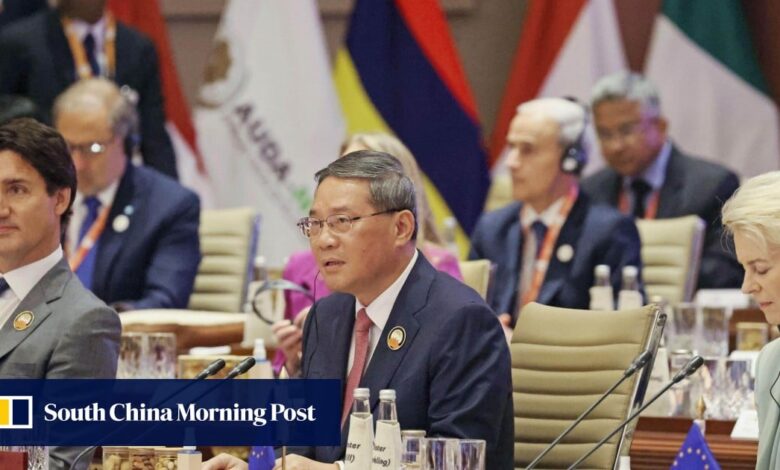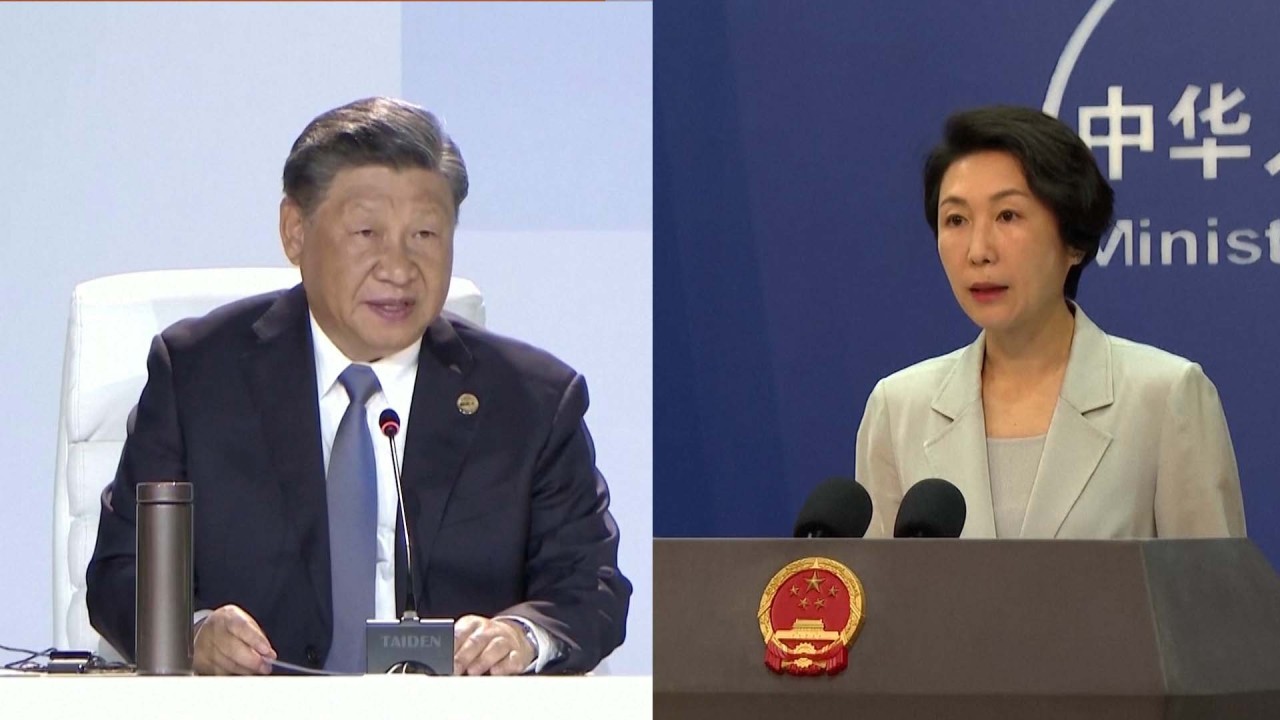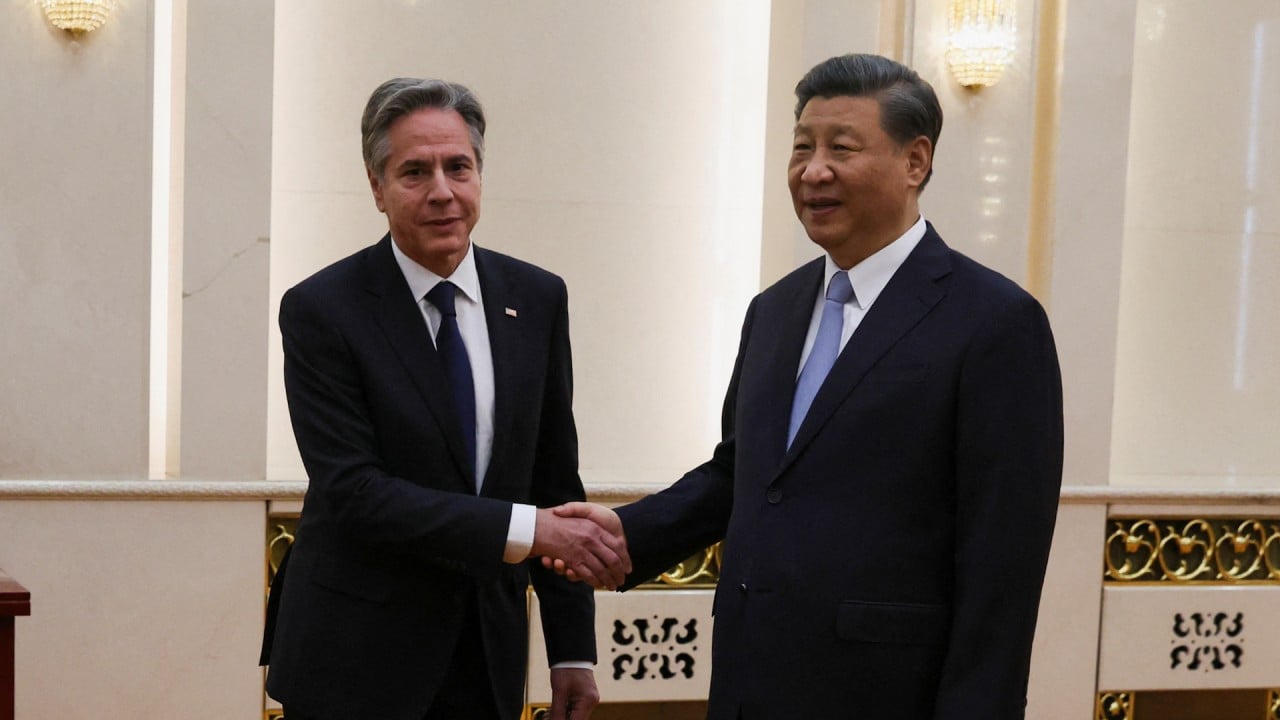Rising China not a challenge for US, Premier Li Qiang told Joe Biden on G20 sidelines

[ad_1]
“President Biden said that the US hopes to see China’s economy growing and will not hurt its growth,” she added.
Military-to-military exchanges, however, are still on pause over continued US sanctions on Chinese Defence Minister Li Shangfu.
The Li Qiang-Biden meeting was an unscripted encounter, after the White House said ahead of the summit that the president did not wish to engage with the Chinese leader. It was also the highest-level bilateral engagement in the 10 months since Biden and Chinese President Xi Jinping spoke at last year’s G20 summit in Bali, Indonesia.
Xi did not attend the New Delhi event. Li, who is mainly responsible for China’s economic policy, took his place – becoming the first Chinese premier to attend a G20 summit.
China did not publish a readout of the Li-Biden exchange, only releasing a brief summary of Li’s official trips to Indonesia and India on Monday – a day after he returned to Beijing.
Speaking to the media after landing in Hanoi on Sunday, Biden reiterated that his participation at the summit was “less about containing China”, or “isolating China” and he emphasised that the US did not intend to impair China’s economic development.
Biden holds highest-level talks with China’s leaders in months
Biden holds highest-level talks with China’s leaders in months
Shi Yinhong, an international relations professor at Renmin University in Beijing, said given the intensifying rivalry on multiple fronts, it was “impossible” for the brief Li-Biden exchange to have any significant impact on US-China relations.
“For many months, there has been no lack of communication between China and the US … but [the two sides] have never had a remarkable and permanent improvement on even a single major issue,” Shi said.
Xu Qinduo, a political analyst at the Chinese think tank Pangoal Institution, said the exchange was a “positive” sign but had “only symbolic value”.
“It’s unlikely that China-US relations will change in the short term,” Xu said. “If you look at recent moves by the US – the expansion of global financial institutions’ lending power, the proposed economic corridor from India and Saudi Arabia to Europe, a diplomatic visit to Vietnam – they are all about containing China.”
Koh King Kee, president of Malaysian think tank Centre for New Inclusive Asia, was more hopeful of the personal rapport such encounters might build.
“High-level interactions like this one between Li and Biden will not necessarily or immediately thaw bilateral ties, but person-to-person meetings will definitely help to rebuild rapport between the leaders, minimise existing misunderstandings, and patch up the two countries’ political trust for each other, which is currently almost non-existent,” Koh said.
Biden also said Beijing faced a “difficult economic problem right now” that would keep it from invading Taiwan. “And matter of fact, the opposite – it probably doesn’t have the – the same capacity that it had before,” a White House readout quoted him as saying.
“We’re not looking to hurt China, sincerely. We’re all better off if China does well,” Biden said.
Shi said Beijing’s seeming restraint lately in the Taiwan Strait – the most contentious issue in its ties with Washington – gave cause for optimism on the outlook for bilateral ties.
This came despite a series of apparently provocative moves like the first-ever US military aid to the island through a programme reserved for sovereign nations, and Taiwanese presidential hopeful William Lai Ching-te’s US transits last month.
Washington does not recognise Taiwan as independent but is opposed to any unilateral change to the cross-strait status quo, and its high-level exchanges with Taipei earlier sparked fury in Beijing.
PLA’s Shandong aircraft carrier sails off south Taiwan in ‘show of force’
PLA’s Shandong aircraft carrier sails off south Taiwan in ‘show of force’
US-China tensions hit a boiling point earlier this year over a flurry of issues including advanced technology, geopolitics and trade. But the two sides have recently turned to dialogue to prevent a further deterioration of ties.
This has included a series of high-level official visits, possibly paving the way for a Xi-Biden meeting at the Asia-Pacific Economic Cooperation summit in San Francisco in November.
“Furthermore, the US is having an election soon. Biden has little room to do anything regarding China, except showing he is the toughest on it.”
Additional reporting by Cyril Ip and Orange Wang
[ad_2]
Source link







